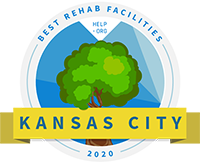
“I wish people knew my backstory… I wasn’t always smiling, I wasn’t always, you know, happy. I was so miserable because of what I was doing to myself.” Adolph told me, reflecting on how far he had come since being discharged from Benilde Hall in November of 2020. Four years later, he says, “I’m happy with where I’m at, I’m happy with who I am… Sharing my story with you, and with others, I’m hoping that it might help someone else.”
While getting to know Adolph, I was delighted by his conversation. He was jovial, and genuine with a bright smile, helpful attitude, and great enthusiasm for having the chance to speak about his experience with Benilde Hall.
He began by filling me in on his life growing up. His father was addicted to drugs and alcohol, and his mother was an alcoholic. Living in a household where he witnessed consistent domestic abuse, Adolph said he had convinced himself that he must have some fault in the pain, violence and anger that surrounded him.
When asked what his biggest accomplishment was during his time at Benilde Hall, Adolph immediately responded, “being able to speak to the therapist. Because in my household, you know, probably the biggest misconception that men have when growing up is we’re supposed to be tough and keep it bottled up. But you realize later on in life, it’s not good to keep it bottled up, that there’s a lot of underlying issues and reasons as to why we’re lashing out. And I say lashing out, I mean like drinking and doing drugs.”
He reflected on that very first conversation with the therapist at Benilde Hall, “I remember walking out and feeling like a huge weight had been taken off.. It was reassuring to hear her [the therapist] tell me that it wasn’t my fault. I mean, my actions were my fault, but as you know with my father acting out towards my mother that way, a lot of times I thought it was something I had maybe triggered… I was able to make peace with myself, with all of that.”
With a difficult upbringing and lack of proper emotional education, Adolph found himself turning to drugs and alcohol as an outlet. He described himself as a father to his six children, rather than a parent, “I say I’m a father of six, because I haven’t always been there.” While serving time for a DWI over four years ago, Adolph realized he needed a change. That something had to be different. “I was tired of letting people down, tired of letting myself down, and especially my children.” He went on to say, “I was just tired, tired of letting my girlfriend of 15 years down. I was always in prison, always in jail. And she’s an amazing person.”
When he made the decision to turn his life around, Adolph said he took inspiration from his mother, “One day,” he went on to tell the story with a clear sense of pride in his mother, “she called me and said she had to go to the hospital… she said she wanted to get sober. I never heard of anything like that, but she admitted herself to the hospital to detox… When she was there, she said [to me], ‘I want you to go home, get all my beer, and get rid of it’... I poured it all out.”
“It was always in the back of my mind, ‘well if this woman is strong enough, then I know I can do it because I’m a product of her’.”
Adolph discovered Benilde Hall through word of mouth after having not quite taken to a recovery program at a different center. “I needed more guidance, I knew that’s what I needed to do. I needed to rebuild from the ground up… I needed the foundation. And that’s what I got from here [Benilde Hall].”
When Adolph arrived and met with the counselors to discuss his goals for reaching sobriety and recovery, he was adamant that he needed to stay for a year. “I knew this couldn’t be a 120-day program and then go right back out there. I knew I needed more than that.” Adolph ended up staying at Benilde Hall for around eleven months before being discharged in the fall of 2020.
Coming straight from work, driving out to Benilde Hall, and making time to share his story with me so that I could share it with others was testament enough to Adolph’s respect for Benilde Hall. His words only confirmed it.
He expressed his gratitude for the various ways Benilde Hall helped him and other clients, including mental health counseling, help getting food stamps, cell phones, birth certificates, IDs, and building a resume, among many other resources. His biggest piece of advice to someone coming to Benilde Hall and wanting to succeed in the program was, “ask a lot of questions… Even if it’s something as simple as getting your ID or a pair of shoes, whatever you need. It’s here, it’s within these walls. And if it’s not, someone will get you to where you need to go… Nothing is too little to ask about.”
He reflected on the kindness of the counselors, and the benefits of being surrounded by the other clients who were just as serious and committed to their recovery as himself. He volunteered a memory that had stuck with him, “I remember Danny [Benilde Hall’s Program Manager], called me out on it, in a good way. He said, ‘hey man, you’re gonna be alright’, because it was just the way I would walk. I felt and looked defeated. But then, within the first month, I was cheery and happy. I had to learn to love myself and take care of myself so that I could love others.”
When asked about what he wished people knew about him before passing judgement, Adolph answered, “my backstory.” He said, “Oftentimes, people see me and they see the tattoos, and they see the low haircut, and they think, ‘oh, you know, he may be a gang member or something,’ and I’m not. I’m just a big ‘ol teddy bear, if you will… You haven’t even opened the book up, but you’re just trying to judge me from the cover.”
After his time at Benilde Hall, Adolph still hasn’t forgotten the importance of everything he learned here. Now, his priorities are taking care of himself and being kind to others.
“Kindness can go a long way. Period. And don’t get me wrong, there are times when people aren’t so kind… I gotta remember not to take things so personal… I try and remember some of the things I’ve learned here and just keep that in mind.”
In a moment of admirable vulnerability and strength, Adolph shared an example of just how far he’d come by telling me more about his relationship with his son. “After I left Benilde Hall, my son got into an unfortunate accident where he was shot six times… a lot of people thought I was going to lose it then. But I kept my faith in God.” With his new outlook on life, Adolph said, “I tried to take myself into this gentleman’s mindset. What is he going through? Is he fighting addiction?... I just try to be more compassionate now… That is somebody’s son, could be somebody’s father, maybe somebody’s brother, or husband. Are two wrongs really going to make it right? I just learned to forgive."
About his son, Adolph shared, “he was a drinker, but he’s going on 5 months sober now. I had to sit him down one day and say, ‘I’m not trying to be your father, I’m coming to you as a friend. You are going to face some consequences if you keep living the way you’re living’.”
Adolph also shared the recent memory of his cousin’s passing. While driving under the influence, Adolph’s cousin had died in a car crash. “My son said, ‘you know dad, I’m glad you don’t mess around with that no more because that could’ve easily been you’. And I turned around and said, ‘and it also could be you’... And I think that really helped it click… He was trying to tell me that his biggest fear was losing me, and I’m telling him that’s my biggest fear as well.”
I had asked Adolph earlier what his biggest accomplishment was, and at this point in the conversation, he had realized his answer was different. Helping his son decide to get sober, he said, “that’s really my best accomplishment.”
After Benilde Hall, Adolph found work as a dock worker for a company that produced exterior doors. His supervisor eventually gave Adolph a shot at a position building doors because of his eagerness, hard working attitude and his talent working with tools. Adolph spent three years in this position, enjoying working with his hands and getting better and better at producing doors. He now works for a different company, still building doors, but has not forgotten the kindness of his first supervisor who gave him the chance to prove himself.
Adolph takes great pride in his work, saying he loves his job because, “Although I don’t see the consumer buying it, I build this door as if it’s going in my house. I take a lot of pride in what I do… I just want the buyer to say, ‘hey this looks like someone really did their job’.” He received recognition from his supervisor, taking on the title of ‘safety lead’. “They said, ‘hey we think you’d be an asset to this part of the job’, and that made me feel good.”
Adolph enjoys fishing and tinkering with old vehicles. He says, “for me, [fishing] was time well spent with my grandfather, he loved to fish. So for me, it’s just mind-soothing and kinda takes me back. I got two girls [granddaughters] where I’m waiting for them to get to that age where hopefully I can teach them.”
His biggest goal for the future is to continue building his relationship with his children and being a grandparent to his two granddaughters. While two of his children are still reluctant to speak to him, Adolph expresses, “and I understand that, I really do.”
Adolph discussed asking his children he speaks with frequently, “‘does this bother you?’ and they’re just like, ‘no, dad. This is amazing’... and I bring it up every now and then, ‘thank you for forgiving me because it means a lot’. And I feel like now, everything is coming full circle because I’m mending my broken bridges.”
At the end of our conversation, Adolph once again let me know that he was happy to do whatever I needed from him if it meant helping Benilde Hall. He looks forward to continuing spending time with family, his girlfriend, fishing, working, sharing his story and spreading kindness.
If you would like to help support individuals like Adolph, who are eager to rebuild their lives but are unsure of where to start, please click the button below to give to Benilde Hall and provide them with the resources they need to recover.



























